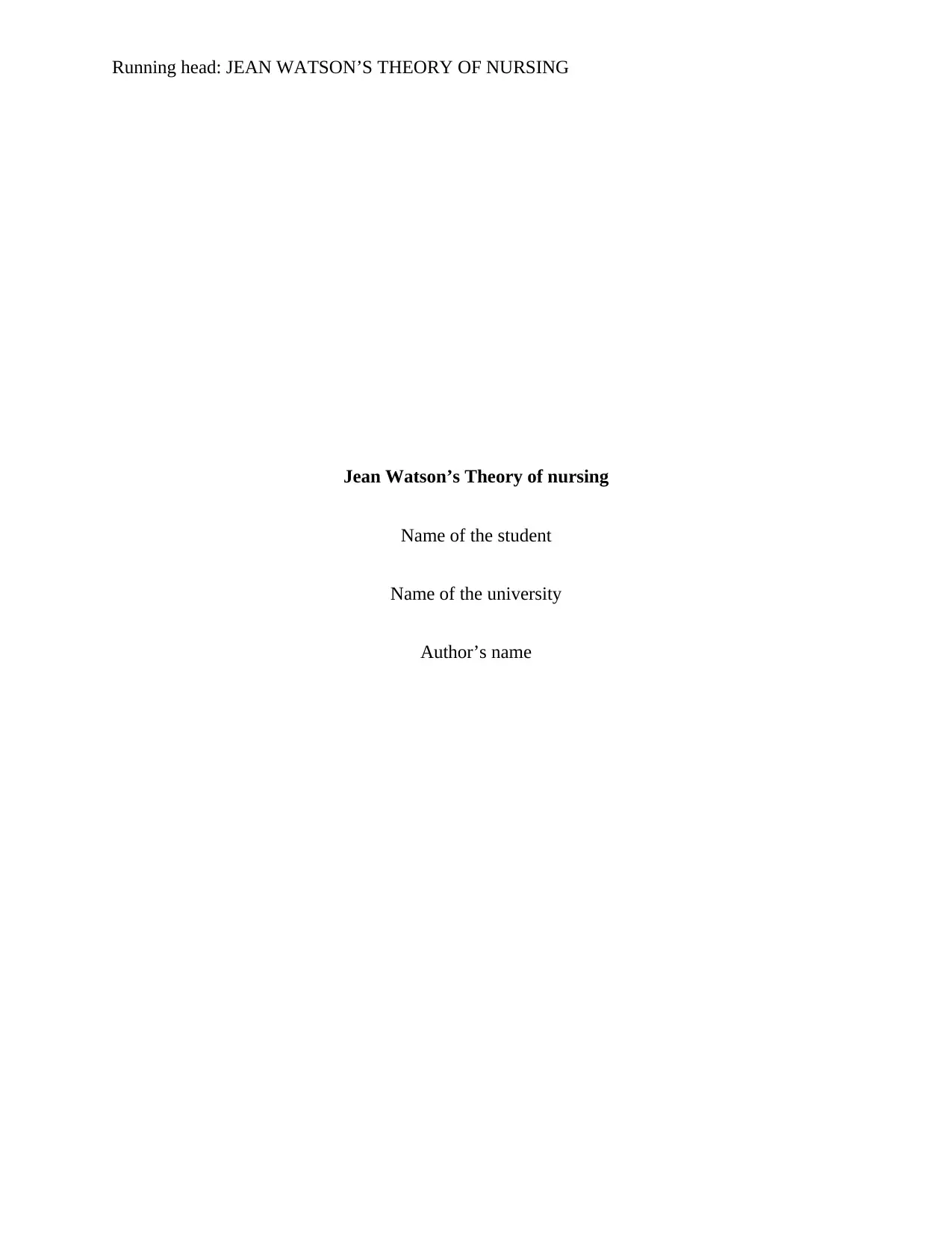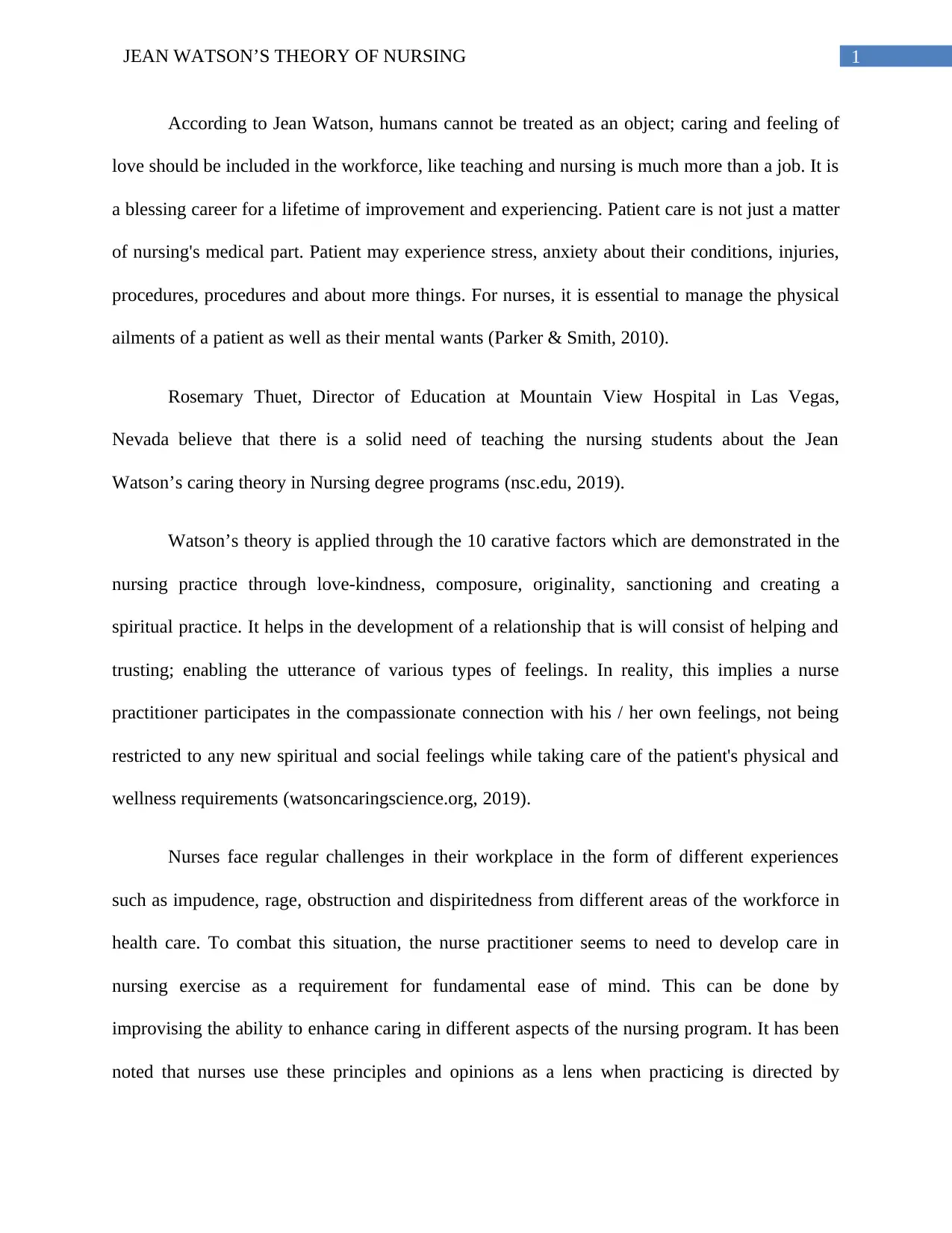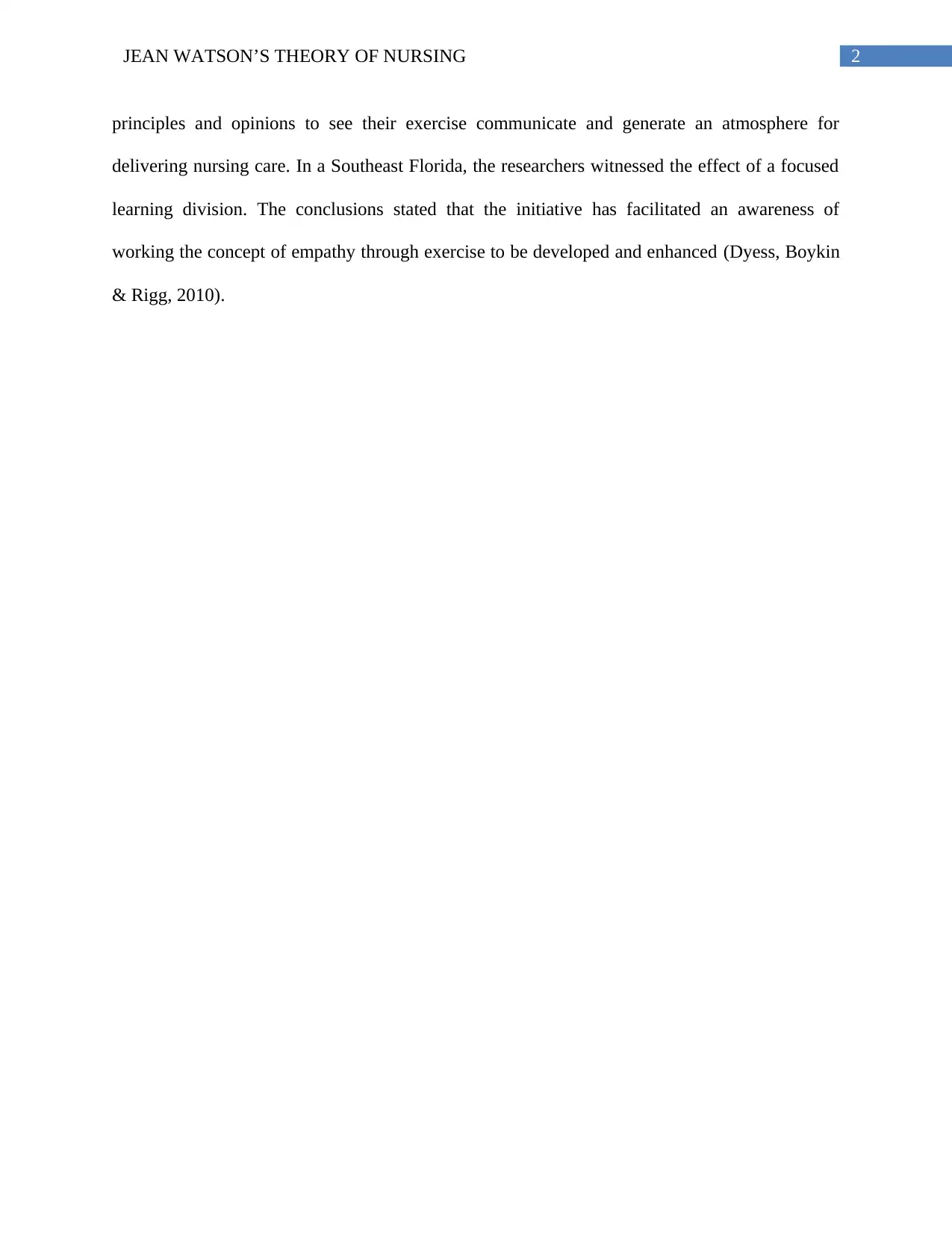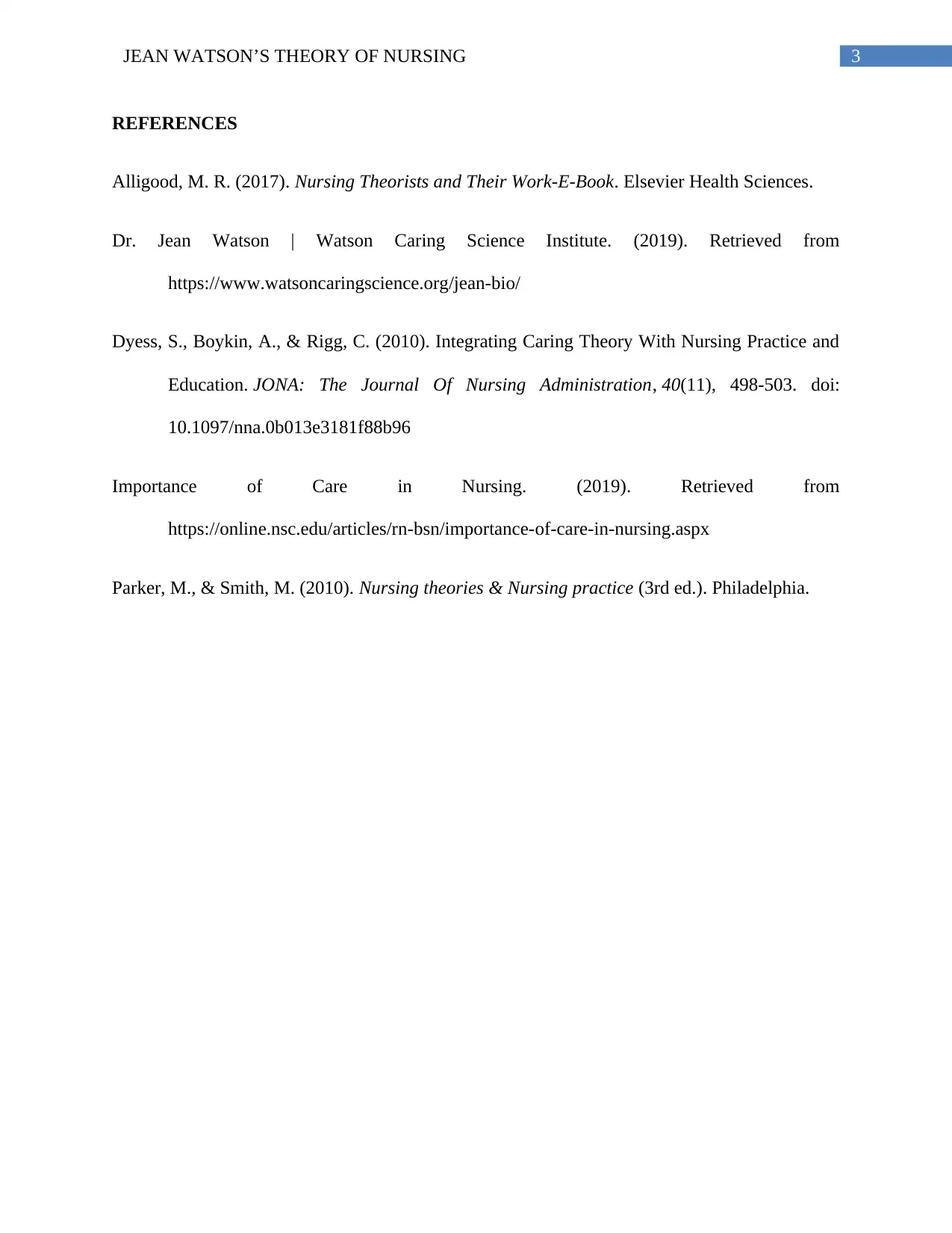Exploring Jean Watson's Theory of Nursing and Its Application
VerifiedAdded on 2022/11/24
|4
|586
|237
Report
AI Summary
This report delves into Jean Watson's Theory of Nursing, emphasizing the importance of caring and compassion in healthcare practice. It explores the core principles of the theory, including the 10 carative factors, and their application in fostering a nurturing environment for patients. The report highlights the significance of nurses addressing both the physical and emotional needs of patients, and it discusses how the theory can be implemented in nursing education and practice to enhance empathy and improve patient outcomes. The report references the work of Dr. Jean Watson, as well as relevant research on the impact of caring theories on nursing practice. Furthermore, it explores the practical implications of Watson's theory, demonstrating how nurses can use these principles to create a supportive and healing environment for patients. The report also cites the importance of integrating caring theory into nursing education to prepare future nurses to provide holistic care.
1 out of 4






![[object Object]](/_next/static/media/star-bottom.7253800d.svg)